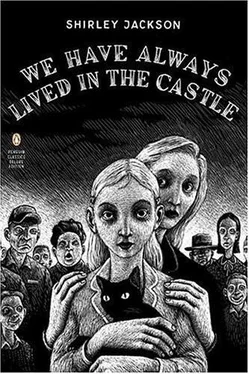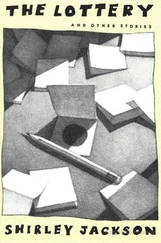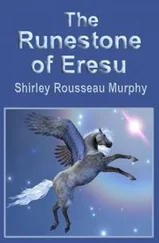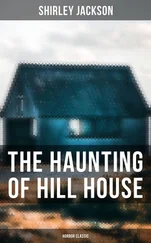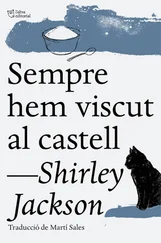Shirley Jackson - We Have Always Lived in the Castle
Здесь есть возможность читать онлайн «Shirley Jackson - We Have Always Lived in the Castle» весь текст электронной книги совершенно бесплатно (целиком полную версию без сокращений). В некоторых случаях можно слушать аудио, скачать через торрент в формате fb2 и присутствует краткое содержание. Город: New York, Год выпуска: 2006, ISBN: 2006, Издательство: Penguin Books, Жанр: Триллер, gothic_novel, на английском языке. Описание произведения, (предисловие) а так же отзывы посетителей доступны на портале библиотеки ЛибКат.
- Название:We Have Always Lived in the Castle
- Автор:
- Издательство:Penguin Books
- Жанр:
- Год:2006
- Город:New York
- ISBN:978-1-101-53065-8
- Рейтинг книги:3 / 5. Голосов: 1
-
Избранное:Добавить в избранное
- Отзывы:
-
Ваша оценка:
- 60
- 1
- 2
- 3
- 4
- 5
We Have Always Lived in the Castle: краткое содержание, описание и аннотация
Предлагаем к чтению аннотацию, описание, краткое содержание или предисловие (зависит от того, что написал сам автор книги «We Have Always Lived in the Castle»). Если вы не нашли необходимую информацию о книге — напишите в комментариях, мы постараемся отыскать её.
is a deliciously unsettling novel about a perverse, isolated, and possibly murderous family and the struggle that ensues when a cousin arrives at their estate.
We Have Always Lived in the Castle — читать онлайн бесплатно полную книгу (весь текст) целиком
Ниже представлен текст книги, разбитый по страницам. Система сохранения места последней прочитанной страницы, позволяет с удобством читать онлайн бесплатно книгу «We Have Always Lived in the Castle», без необходимости каждый раз заново искать на чём Вы остановились. Поставьте закладку, и сможете в любой момент перейти на страницу, на которой закончили чтение.
Интервал:
Закладка:
The water moved sleepily in the darkness and I wondered what kind of a house we would have now. Perhaps the fire had destroyed everything and we would go back tomorrow and find that the past six years had been burned and they were waiting for us, sitting around the dining-room table waiting for Constance to bring them their dinner. Perhaps we would find ourselves in the Rochester house, or living in the village or on a houseboat on the river or in a tower on top of a hill; perhaps the fire might be persuaded to reverse itself and abandon our house and destroy the village instead; perhaps the villagers were all dead now. Perhaps the village was really a great game board, with the squares neatly marked out, and I had been moved past the square which read “Fire; return to Start,” and was now on the last few squares, with only one move to go to reach home.
Jonas’s fur smelled of smoke. Today was Helen Clarke’s day to come to tea, but there would be no tea today, because we would have to neaten the house, although it was not the usual day for neatening the house. I wished that Constance had made sandwiches for us to bring down to the creek, and I wondered if Helen Clarke would try to come to tea even though the house was not ready. I decided that from now on I would not be allowed to hand tea cups.
When it first began to get light I heard Constance stirring on the leaves and I went into my hiding place to be near her when she awakened. When she opened her eyes she looked first at the trees above her, and then at me and smiled.
“We are on the moon at last,” I told her, and she smiled.
“I thought I dreamed it all,” she said.
“It really happened,” I said.
“Poor Uncle Julian.”
“They came in the night and took him away, and we stayed here on the moon.”
“I’m glad to be here,” she said. “Thank you for bringing me.”
There were leaves in her hair and dirt on her face and Jonas, who had followed me into my hiding place, stared at her in surprise; he had never seen Constance with a dirty face before. For a minute she was quiet, no longer smiling, looking back at Jonas, realizing that she was dirty, and then she said, “Merricat, what are we going to do?”
“First we must neaten the house, even though it is not the usual day.”
“The house,” she said. “Oh, Merricat.”
“I had no dinner last night,” I told her.
“Oh, Merricat. ” She sat up and untangled herself quickly from Uncle Julian’s shawl and the leaves; “Oh, Merricat, poor baby,” she said. “We’ll hurry,” and she scrambled to her feet.
“First you had better wash your face.”
She went to the creek and wet her handkerchief and scrubbed at her face while I shook out Uncle Julian’s shawl and folded it, thinking how strange and backward everything was this morning; I had never touched Uncle Julian’s shawl before. I already saw that the rules were going to be different, but it was odd to be folding Uncle Julian’s shawl. Later, I thought, I would come back here to my hiding place and clean it, and put in fresh leaves.
“Merricat, you’ll starve.”
“We have to watch,” I said, taking her hand to slow her. “We have to go very quietly and carefully; some of them may still be around waiting.”
I went first down the path, walking silently, with Constance and Jonas behind me. Constance could not step as silently as I could, but she made very little sound and of course Jonas made no sound at all. I took the path that would bring us out of the woods at the back of the house, near the vegetable garden, and when I came to the edge of the woods I stopped and held Constance back while we looked carefully to see if there were any of them left. For one first minute we saw only the garden and the kitchen door, looking just as always, and then Constance gasped and said, “Oh, Merricat, ” with a little moan, and I held myself very still, because the top of our house was gone.
I remembered that I had stood looking at our house with love yesterday, and I thought how it had always been so tall, reaching up into the trees. Today the house ended above the kitchen doorway in a nightmare of black and twisted wood; I saw part of a window frame still holding broken glass and I thought: that was my window; I looked out that window from my room.
There was no one there, and no sound. We moved together very slowly toward the house, trying to understand its ugliness and ruin and shame. I saw that ash had drifted among the vegetable plants; the lettuce would have to be washed before I could eat it, and the tomatoes. No fire had come this way, but everything, the grass and the apple trees and the marble bench in Constance’s garden, had an air of smokiness and everything was dirty. As we came closer to the house we saw more clearly that the fire had not reached the ground floor, but had had to be content with the bedrooms and the attic. Constance hesitated at the kitchen door, but she had opened it a thousand times before and it ought surely to recognize the touch of her hand, so she took the latch and lifted it. The house seemed to shiver when she opened the door, although one more draft could hardly chill it now. Constance had to push at the door to make it open, but no burned timber crashed down, and there was not, as I half thought there might be, a sudden rushing falling together, as a house, seemingly solid but really made only of ash, might dissolve at a touch.
“My kitchen,” Constance said. “My kitchen.”
She stood in the doorway, looking. I thought that we had somehow not found our way back correctly through the night, that we had somehow lost ourselves and come back through the wrong gap in time, or the wrong door, or the wrong fairy tale. Constance put her hand against the door frame to steady herself, and said again, “My kitchen, Merricat.”
“My stool is still there,” I said.
The obstacle which made the door hard to open was the kitchen table, turned on its side. I set it upright, and we went inside. Two of the chairs had been smashed, and the floor was horrible with broken dishes and glasses and broken boxes of food and paper torn from the shelves. Jars of jam and syrup and catsup had been shattered against the walls. The sink where Constance washed her dishes was filled with broken glass, as though glass after glass had been broken there methodically, one after another. Drawers of silverware and cooking ware had been pulled out and broken against the table and the walls, and silverware that had been in the house for generations of Blackwood wives was lying bent and scattered on the floor. Tablecloths and napkins hemmed by Blackwood women, and washed and ironed again and again, mended and cherished, had been ripped from the dining-room sideboard and dragged across the kitchen. It seemed that all the wealth and hidden treasure of our house had been found out and torn and soiled; I saw broken plates which had come from the top shelves in the cupboard, and our little sugar bowl with roses lay almost at my feet, handles gone. Constance bent down and picked up a silver spoon. “This was our grandmother’s wedding pattern,” she said, and set the spoon on the table. Then she said, “The preserves,” and turned to the cellar door; it was closed and I hoped that perhaps they had not seen it, or had perhaps not had time to go down the stairs. Constance picked her way carefully across the floor and opened the cellar door and looked down. I thought of the jars and jars so beautifully preserved lying in broken sticky heaps in the cellar, but Constance went down a step or two and said, “No, it’s all right; nothing here’s been touched.” She closed the cellar door again and made her way across to the sink to wash her hands and dry them on a dishtowel from the floor. “First, your breakfast,” she said.
Читать дальшеИнтервал:
Закладка:
Похожие книги на «We Have Always Lived in the Castle»
Представляем Вашему вниманию похожие книги на «We Have Always Lived in the Castle» списком для выбора. Мы отобрали схожую по названию и смыслу литературу в надежде предоставить читателям больше вариантов отыскать новые, интересные, ещё непрочитанные произведения.
Обсуждение, отзывы о книге «We Have Always Lived in the Castle» и просто собственные мнения читателей. Оставьте ваши комментарии, напишите, что Вы думаете о произведении, его смысле или главных героях. Укажите что конкретно понравилось, а что нет, и почему Вы так считаете.
